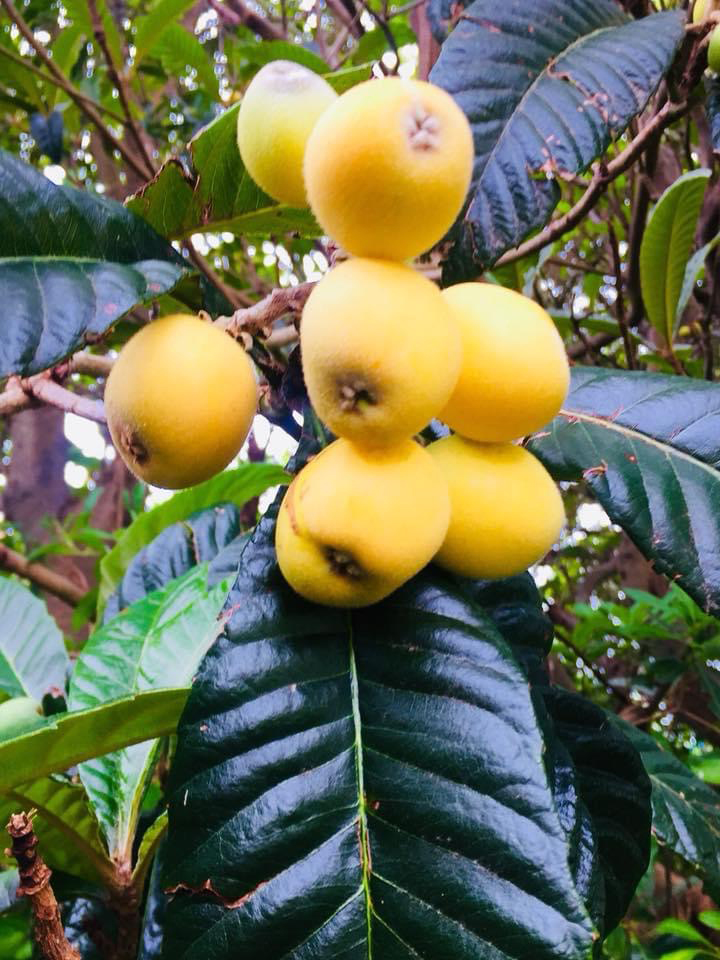
When I was in elementary school, my granduncle was a joururi master (Tomoharu Tsuruzawa), so I often went to Awaji Island with my granduncle. At the time of the rainy season, Biwa (loquat) always came out when the disciple’s practice was over. I’m really looking forward to eating Biwa soaked in the cold water of the mountain stream with my disciples, and I remember eating many. The practice space was the farmhouse where my aunt was married, and they was also cultivating watermelons and tomatoes in addition to loquats, so I was really looking forward to going to Awaji Island. The sunset over the Seto Inland Sea was very beautiful, which also was a strong impression on my childhood.
小学生の時、大叔父が浄瑠璃の師匠 (鶴澤 友春)をしていた関係で、大叔父に連れられて淡路島にはよく行きました。梅雨の時分には、お弟子さんの練習が終わると必ず出たのが枇杷です。お弟子さんに混じって、谷川の冷たい水に浸けられた枇杷を食べるのがとても楽しみで、幾つも食べたことを思い出します。練習場は叔母の嫁ぎ先の農家で、枇杷の他、西瓜やトマトも栽培していたので、これも頂き、淡路島に行くのがとても楽しみでした。瀬戸内海に沈んで行く夕日がとても美しく、これも子供心に強く印象付けられました。
